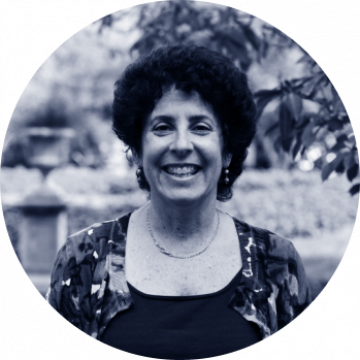
Judi Greenwald is the President and CEO of the Nuclear Innovation Alliance.
Ms. Greenwald has over 35 years of energy and environmental policy leadership experience in the public and nonprofit sectors, including the U.S. Congress, the White House, the Environmental Protection Agency, the Department of Energy, the Nuclear Regulatory Commission, and the Center for Climate and Energy Solutions (C2ES, formerly the Pew Center on Global Climate Change). Highlights of her distinguished career include working on the 1990 Clean Air Act Amendments as congressional committee staff; overseeing energy and environmental programs at C2ES and DOE; co-founding the Carbon Capture Coalition; advising U.S. state and regional greenhouse gas initiatives; and collaborating with stakeholders to advance both economic and environmental goals.
She has focused extensively on deep decarbonization through the interplay of public policy, technology innovation, human behavior, and markets. She served as Deputy Director for Climate, Environment, and Energy Efficiency at US DOE's Energy Policy and Systems Analysis Office, and the Senior Climate Advisor to the Energy Secretary. She is a fellow at Princeton University's Andlinger Center for Energy and the Environment. Ms. Greenwald received a B.S. in Engineering, cum laude, from Princeton University, and an M.A. in Science, Technology, and Public Policy from George Washington University.
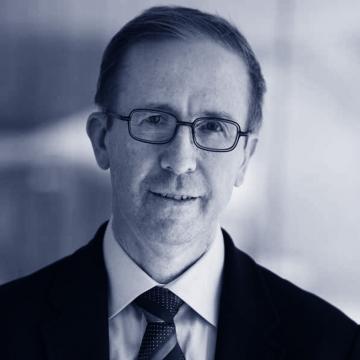
Dr. Todd Allen is Professor at the University of Michigan and a Senior Fellow at Third Way, a DC based Think Tank, supporting their Clean Energy Portfolio. He was the Deputy Director for Science and Technology at the Idaho National Laboratory from January 2013 through January 2016. Prior to INL he was a Professor in the Engineering Physics Department at the University of Wisconsin, a position held from September 2003 through December 2012 and again from January 2016-December 2018. From March 2008-December 2012, he was concurrently the Scientific Director of the Advanced Test Reactor National Scientific User Facility at INL. Prior to joining the University of Wisconsin, he was a Nuclear Engineer at Argonne National Laboratory-West in Idaho Falls. His Doctoral Degree is in Nuclear Engineering from the University of Michigan (1997) and his Bachelor’s Degree in Nuclear Engineering is from Northwestern University (1984). Prior to graduate work, he was an officer in the United States Navy Nuclear Power Program.

Dr. Leslie Dewan develops technology to build the supply chain for advanced nuclear reactors. Leslie received her Ph.D. in nuclear engineering from MIT, as well as S.B. degrees from MIT in mechanical engineering and nuclear engineering. Previously, she was the CEO of Transatomic Power, a company that designed safer nuclear reactors that leave behind less waste than conventional designs. Leslie has been awarded an MIT Presidential Fellowship and a Department of Energy Computational Science Graduate Fellowship. She has served on the MIT Corporation, MIT’s board of trustees, and on the National Academy of Engineering’s study, “Laying the Foundation for New and Advanced Nuclear Reactors in the United States.” Leslie has been named an MIT Technology Review "Innovator Under 35," a National Geographic Explorer, and a World Economic Forum Young Global Leader.
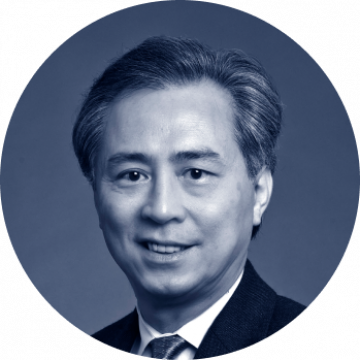
Dr. Chan is serving as the Chief Technology Officer (Manager of Technology) for Bechtel National, Inc., a global architect/engineering/construction company based in the U.S. Dr. Chan has the broad responsibility for technology innovation, advanced reactor program development, emerging technology evaluation and due diligence, technical expertise development, and expert consultation in the four major nuclear and defense business sectors: Nuclear Security & Operations, Nuclear Power, Defense & Security, and Environmental. He has involved with and evaluated numerous advanced technologies including small modular nuclear reactors, fusion technologies, fast neutron reactors, advanced light water reactors, high temperature gas-cooled reactors, advanced liquid metal reactors, advanced concentrated solar power technologies, offshore wind power plants, advanced carbon capture technologies, advanced energy storage systems, and supercritical CO2 turbo-machinery technologies. In 2024, Dr. Chan was elected as one of the 26 Bechtel Fellows specializing in Nuclear Technology.
Dr. Chan has served on various government advisory boards and industrial committees, including National Coal Council (Energy Secretary nominated), ASME Industry Advisory Board, ASME Section III Executive Strategy Advisory Council, Business Roundtable Working Group, State of Maryland Radiation Control Safety Board, Nuclear Energy Institute Task Forces, EPRI Advanced Nuclear Technology Integration Committee, and EPRI CoalFleet Committee on Carbon Capture. Dr. Chan received his Ph.D. in Computational and Nuclear Physics, M.S. in Nuclear Physics, and B.S. in Physics from the University of Massachusetts, Lowell.
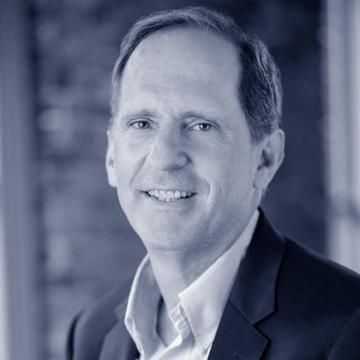
Armond Cohen is co-founder and Executive Director of the Clean Air Task Force, which he has led since its formation in 1996. In addition to leading CATF, Armond is directly involved in CATF research and advocacy on the topic of requirements to deeply decarbonize global energy systems. Prior to his work with CATF, Armond founded and led the Conservation Law Foundation’s Energy Project starting in 1983, focusing on energy efficiency, utility resource planning, and electric industry structure. Armond has published numerous articles on climate change, energy system transformation, and air pollution; he speaks, writes, and testifies frequently on these topics. He is a member of the Keystone Center Energy Board. Armond is an honors graduate of Harvard Law School and Brown University.

Lara Pierpoint is passionate about technologies that meaningfully reduce carbon emissions and contribute to a cleaner environment. At Actuate, her job is to design and run programs that get emissions-reducing technologies on the ground faster: experimenting with new approaches that will speed demonstration, deployment, and scale-up of climate change mitigation systems.
Prior to Actuate, her career had taken her through leadership roles in corporate R&D, policymaking, and analysis.
- Director of Technology Strategy for Exelon, 2016 - 2021. Exelon is a Fortune 100 energy company with over 12 million electricity and gas customers and one of the largest and cleanest generation fleets - including the biggest nuclear portfolio. At Exelon, she led the Corporate Strategy technical team. She advised the company on energy technology trends, invested in early- and mid-stage energy storage technologies, and ran Exelon’s partnership R&D program.
- Director of the Office of Energy Supply Security, U.S. DOE Office of Policy and Systems Analysis, 2013 - 2016. She was responsible for policy and analysis related to coal, gas, and nuclear power and energy cyber and physical security.
- AAAS Congressional Science and Engineering Fellow for the Senate Energy and Natural Resources Committee, 2012-2013. Her focus areas included nuclear power and waste issues, energy finance, and electricity storage.
- Ph.D. in Engineering Systems, MIT; S.M. in Nuclear Science and Engineering, MIT; S.M. in Technology and Policy, MIT; B.S. in Physics, UCLA.
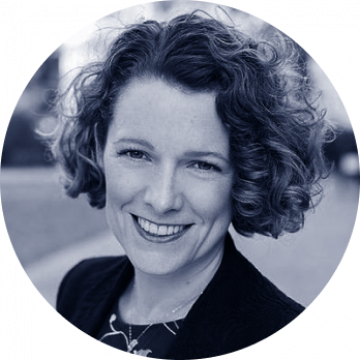
Kirsty Gogan, is the co-founder and managing director of consulting firm, LucidCatalyst and climate-focused non-profit, and TerraPraxis. Both organisations focus on enabling high-impact rapid transitions for neglected parts of the decarbonisation challenge. Working with an extensive global network they define, incubate, and initiate scalable strategies that fulfill the twin missions of prosperity and decarbonisation. Through a combination of rigorous, credible analysis, relationships of trust, and values alignment with key influencers, LucidCatalyst and TerraPraxis map transformative solutions into the uncharted territory of decarbonisation that are otherwise absent from the discourse.
Kirsty is a member of the UK Government’s Nuclear Innovation Research and Advisory Board (NIRAB) and has been appointed by the IAEA Director General to serve as the UK representative on his Standing Advisory Group for Nuclear Applications. She serves on the Board of US NGO, Nuclear Innovation Alliance, as well as the French NGO, Voices for Nuclear. The US National Academies of Sciences, Engineering, and Medicine has appointed her to serve on a committee to identify opportunities and barriers to the commercialisation of new and advanced nuclear energy technologies over the next 30 years. Kirsty is regularly invited as an expert speaker on science communication, climate change, competitiveness and innovation to high profile events around the world. She has more than 20 years experience as a senior advisor to Governments on climate and energy policy, including 10 Downing St, and the Office of the Deputy Prime Minister.
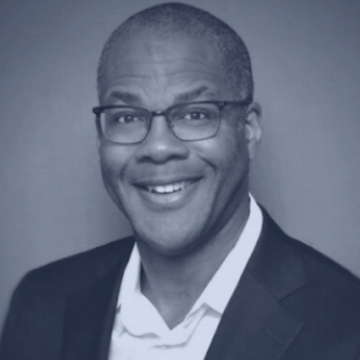
Christopher Smith was named Ford Motor Company's chief government affairs officer in March 2022. He leads a global team that is constantly enhancing the company’s expertise and influence in legislation and policy. Rapidly evolving policy priorities include areas such as connectivity, electric vehicles and digital services, and are intended to benefit customers, society and the environment, among other stakeholders.
For four-plus years prior to Ford, Smith was senior vice president for policy, government and public affairs – a function he created – at Cheniere Energy, the world’s second-largest liquefied natural gas operator. In that role, Smith led the incorporation of climate principles into Cheniere’s business model and helped modernize related federal regulations.
From 2009 to 2017, Smith served in the U.S. Department of Energy during the Obama Administration, finally as assistant secretary for fossil energy. Earlier in his career, Smith held managerial and analytical positions at Chevron and analytical roles at Citibank and JPMorgan in New York City and London.
Smith earned a bachelor’s degree in engineering management and mechanical engineering from the U.S. Military Academy at West Point, beginning his career as an officer in the U.S. Army. He has a master’s degree in Business Administration from the University of Cambridge in England and a degree in applied mathematics from American Public University.